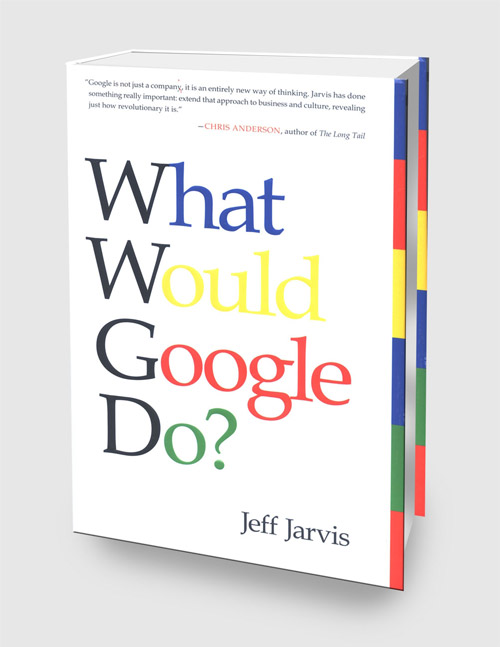Author: Jeff Jarvis Publisher: Harper Collins Publishers
Jeff Jarvis offers an insightful view into the world of Google, the fastest growing company in history. WWGD explores the infinite possibilities that Web 2.0 provides to the networked world, and Jarvis guides us through Google ‘think,’ Google rules, and the radically unique aspects of the Google platform.
I heartily recommend the book. Jarvis’s narrative is crisp, inviting and convincing. Regardless of the size or nature of your business, you have to grasp the vast influence that Web 2.0 represents and the effect it has on your future.
Selections from the author’s work
- The mass market is dead, replaced by the mass of Niches.
- A platform enables. It helps others build value. Any company can be a platform. In the economy we are in now, if you are not a platform you’ll be commoditized.
- First draw your company with all its relationships: customers, suppliers, marketers, competitors. Now draw a network from your customers’ perspective and see where you fit in. Next draw your personal network inside and outside your company and industry. Draw your own company not as a boxy organizational chart but as a network with its many connections. Note where value is exchanged and captured. Now examine how each connection can be more valuable for everyone. Put yourself in a cloud of connections that lights up each time a link is made, so the entire cloud keeps getting bigger, denser, and brighter and more valuable. Then your world starts to look like Google’s.
- You don’t start communities. Communities already exist. They are already doing what they want to do. The question you should ask is how you can help them to do that better.
- If you don’t open up, you can’t collaborate. Collaboration with customers is the highest and most rewarding form of interactivity, for that is when the public tells you what they want in a product before you’ve made it.
- Once you decide what business you’re really in, once you settle on your strategy, once you figure out how to execute it in the new architecture and realities of the Google age, once you cast a new relationship with your world, once you absorb new ethics of this new era into your company’s culture, once you make innovation a keystone of that culture, then there’s one more important thing to do, another vital lesson to learn from Google: Simplify.
- Our fixation should not be on our clients. It should be on the people our clients want to engage, sell, and interact with. We should be the champions of those people.
